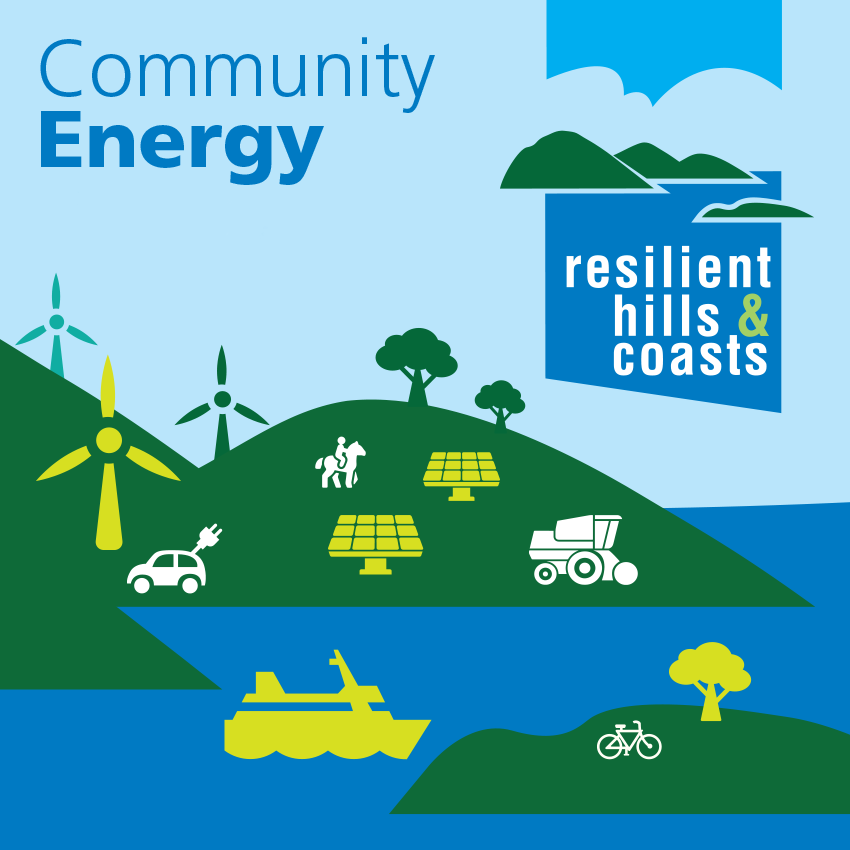Between 2017 and 2020, we explored how we could work together with our partners and communities to deliver a Community Energy Foundation.
Collectively, our region spends around $150m on electricity each year. Most of this money leaves our local economy, but with community energy, we have the potential to keep more of it here.
We believe our communities deserve access to energy that is affordable, reliable and good for the local economy and for our environment. Our project explored how community energy could place downward pressure on energy prices for residential and commercial customers while facilitating the uptake of renewable energy.
Although the proposal for a Resilient Hills & Coasts Community Energy Foundation did not go ahead, the project produced valuable research, a case study and suite of tools that are expected to significantly lower barriers to entry for any council or community exploring their own options to develop a community energy project, particularly in the form of a Community Energy Foundation. This toolkit is supported by the Local Government Research and Development Scheme and Resilient Hills & Coasts.
What resources are available?
We hope you find our resources useful, just click on each below to open.
Communications Resources:
Project Case Study (pdf)
Program Design:
Concept Plan (pdf)
Program Design Report (pdf)
Legal Advice:
White-Labelled Governance Documents:
What is community energy?
In simple terms, community energy is a group of people coming together to generate, own, manage, or reduce consumption of energy. Every community energy initiative is different and developed for different reasons - from tackling climate change to generating local jobs.
Community energy is relatively new to Australia, with over 100 community energy groups and 70 projects.
Community energy projects come in many different forms, including:
Supplying local renewable energy, e.g. Hepburn Wind - two wind turbines owned by local investors that supply electricity to the towns of Daylesford and Hepburn Springs.
Programs delivering energy advice, products and services, e.g. Moreland Energy Foundation’s Positive Charge.
Local renewable energy and climate change strategies, e.g. Totally Renewable Yackandandah and Zero-Net Energy Uralla.
Community owned electricity retailer, e.g. Enova - Australia’s first community owned electricity retailer, using profits from energy sales to support the community.


